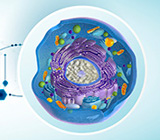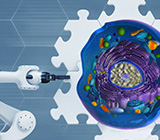-
REAGENT SERVICES
Hot!
-
Most Popular Services
-
Molecular Biology
-
Recombinant Antibody/Protein
-
Reagent Antibody
-
CRISPR Gene Editing
-
DNA Mutant Library
-
IVT RNA and LNP Formulations
-
Oligo Synthesis
-
Peptides
-
Cell Engineering
-
- CRISPR/Cas9 sgRNA
- CRISPR/Cas12a crRNA
- Prime Editing Guide RNA
- Base Editing Guide RNA
- HDR Templates
- gRNA + HDR Template Design Tools
- cGMP Guide RNA
- cGMP HDR Templates
- CRISPR/Cas Proteins
- CAR-T Knock-in Optimization Kit
- CRISPR Plasmids
- CRISPR gRNA Plasmid Libraries
- CRISPR Cell Lines
- Microbial Genome Editing
-
-
PRODUCTS
-
Most Popular Reagents
-
 Instruments
Instruments
-
Antibodies
-
ELISA Kits
-
Protein Electrophoresis and Blotting
-
Protein and Antibody Purification
-
Recombinant Proteins
-
Molecular Biology
-
Stable Cell Lines
-
Cell Isolation and Activation
-
 IVD Raw Materials
IVD Raw Materials
-
 Therapy Applications
Therapy Applications
-
Resources
-
- Pharmacokinetics and Immunogenecity ELISA Kits
- Viral Titration QC ELISA Kits
- -- Lentivirus Titer p24 ELISA KitHot!
- -- MuLV Titer p30 ELISA KitNew!
- -- AAV2 and AAVX Titer Capsid ELISA Kits
- Impurity Test ELISA Kits
- -- BSA ELISA Kit, 2G
- -- Cas9 ELISA KitNew!
- -- Protein A ELISA KitNew!
- -- His tagged protein detection & purification
- -- dsRNA ELISA Kit
- -- Endonuclease ELISA Kit
- COVID-19 Detection cPass™ Technology Kits
-
- Automated Maxi-Plasmid PurificationHot!
- Automated Mini-Plasmid PurificationNew!
- PCR Reagents
- S.marcescens Nuclease Benz-Neburase™
- DNA Assembly GenBuilder™
- Cas9 / Cas12a / Cas13a Nucleases
- Base and Prime Editing Nucleases
- GMP Cas9 Nucleases
- CRISPR sgRNA Synthesis
- HDR Knock-in Template
- CRISPR Gene Editing Kits and Antibodies
-
![AmMag™ Quatro Automated Plasmid Purification]() AmMag™ Quatro automated plasmid purification
AmMag™ Quatro automated plasmid purification
-
![Anti-Camelid VHH]() MonoRab™ Anti-VHH Antibodies
MonoRab™ Anti-VHH Antibodies
-
![ELISA Kits]() ELISA Kits
ELISA Kits
-
![Precast Gels]() SurePAGE™ Precast Gels
SurePAGE™ Precast Gels
-
![Quatro ProAb Automated Protein and Antibody Purification System]() AmMag™ Quatro ProAb Automated Protein and Antibody Purification System
AmMag™ Quatro ProAb Automated Protein and Antibody Purification System
-
![Target Proteins]() Target Proteins
Target Proteins
-
![AmMag™ Quatro Automated Plasmid Purification]() AmMag™ Quatro automated plasmid purification
AmMag™ Quatro automated plasmid purification
-
![Stable Cell Lines]() Stable Cell Lines
Stable Cell Lines
-
![Cell Isolation and Activation]() Cell Isolation and Activation
Cell Isolation and Activation
-
 IVD Raw Materials
IVD Raw Materials
-
![Quick
Order]() Quick Order
Quick Order
-
![Quick
Order]() Quick Order
Quick Order
- APPLICATIONS
- RESOURCES
- ABOUT US
- SIGN IN My Account SIGN OUT
- REGISTER

![Amino Acid Code Amino Acid Code]()
Biology Terms Dictionary
This Biology terms dictionary provides query services for biology and biochemistry terms. Please enter the biology or biochemistry terms you want to search.
List by Alphabet: A B C D E F G H I J K L M N O P Q R S T U V W X Y Z
hybridoma
A hybridoma is a type of cell line created by fusing a specific type of immune cell called a B cell (or B lymphocyte) with a tumor cell. This fusion results in a hybrid cell that possesses the ability to produce large quantities of a single type of antibody, known as a monoclonal antibody. Hybridomas are a fundamental tool in immunology and molecular biology, and they have numerous applications in research, diagnostics, and therapy. Here's how hybridomas are created and their significance: 1. Fusion: A B cell from an immunized animal, typically a mouse, is fused with a tumor cell (often a myeloma cell) that has the ability to divide rapidly. The resulting hybrid cell is capable of continuous growth and antibody production, making it an ideal source of monoclonal antibodies. 2. Selection: The fused cells are then cultured under conditions that allow only the hybridomas to survive and grow. This selection process eliminates unfused B cells and myeloma cells. 3. Cloning: Individual hybridoma cells are isolated and cultured separately to establish a population of cells derived from a single hybridoma. This process, called cloning, ensures that each resulting cell line produces a single type of antibody. 4. Monoclonal Antibody Production: The hybridoma cells are grown in culture, and the antibodies they produce are collected from the culture medium. Monoclonal antibodies produced by hybridomas are highly specific, as they are all derived from a single parent B cell. Significance and Applications of Hybridomas: 1. Monoclonal Antibody Production: Hybridomas are widely used to generate large quantities of specific monoclonal antibodies. These antibodies have important applications in research, diagnostics, and therapy, including the detection of specific antigens, characterization of cellular proteins, and targeted treatment of diseases (such as cancer and autoimmune disorders). 2. Immunotherapy: Hybridomas have contributed to the development of immunotherapies, including monoclonal antibody-based treatments that target cancer cells or modulate the immune response. 3. Disease Research: Monoclonal antibodies produced by hybridomas are essential tools for studying the function of specific molecules in cells, tissues, and biological processes. They are used to identify, localize, and analyze proteins and other molecules of interest. 4. Diagnosis: Hybridoma-derived monoclonal antibodies are used in diagnostic tests, such as enzyme-linked immunosorbent assays (ELISAs) and immunohistochemistry, to detect specific antigens or markers in clinical samples. 5. Vaccine Development: Hybridomas have contributed to the production of monoclonal antibodies used to create vaccines and assess their effectiveness. Overall, hybridomas play a crucial role in advancing our understanding of immunology, supporting medical research, and enabling the development of innovative therapies and diagnostics. Related Services: • Genscript offers Hybridoma Cell Culture Antibody Production Services, Hybridoma Antibody Sequencing and Preparation & Shipping Hybridoma Protocol.
- Tags:
- Cell Engineering
- Antibody
Related Biology Tools
-
GenSmart™ Codon Optimization
GenSmart Optimization is a free online tool for performing codon optimization to improve gene expression. GenScript's patented algorithms are integrated into the tool to optimize the computing capability of high-performance sequence generation.
-
DNA Construct Design Tool
GenSmart™ Design is a free online DNA construct design tool developed by GenScript. GenSmart™ Design has two design modules, the Create Construct module for individual plasmid design and the Create Library module for DNA library design.
-
Codon Frequency Tables
This online tool shows commonly used genetic codon frequency table in expression host organisms including Escherichia coli and other common host organisms.
Service and Products

Cell Engineering
From lentivirus packaging to generating clonal cell lines, let us assist you on your assay cell line creation project.

Assay Cell Line Development
For Drug Discovery, Toxicity Testing and Basic Research.

Research Grade Lentiviral Vector Packaging
Lentiviruses are a powerful gene delivery vector that ensures long-term expression of your target transgene.

Research Grade AAV
Our beta-testers are important to us and we are offering heavily discounted prices and additional guarantees.
-
Top Search
-
Hot Glossary
-
Antibody
If you know of any terms that have been omitted from this glossary that you feel would be useful to include, please send detail to the Editorial Office at GenScript: website@genscript.com
If your term is adopted, we will send 1,000 EzCoupon points to your GenScript account.
-





































